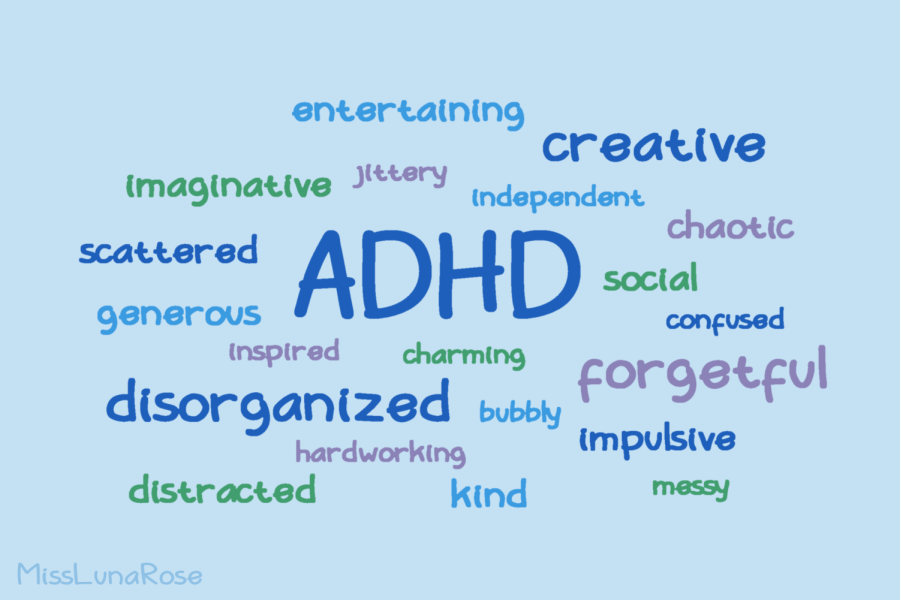What is ADHD and How Can it Affect Someone
February 3, 2022
ADHD, or attention-deficit/hyperactivity disorder, is a common condition that affects anyone of any age or gender. While many may have heard of the condition, its repercussions are not well known.
ADHD is typically diagnosed in early childhood through late adulthood. There are three different types of ADHD, which depend on which symptoms are most severe in a person. These variations include predominantly inattentive presentation, predominantly hyperactive-impulsive presentation, and combined presentation. Predominantly inattentive presentation is when an individual has a difficult time completing tasks, sticking to a routine, paying attention, and following instructions. Predominantly hyperactive-impulsive presentation occurs when someone tends to fidget and talk frequently, has difficulty staying still for long periods of time, interrupts others often, grabs things from others, and speaks at inappropriate times. Combined presentation is when all the symptoms from both forms of ADHD are equally present in a person. The process of being diagnosed with ADHD can either be a little more simple or difficult. Commonly while being diagnosed a physician will look for certain subtypes in someone in order to help diagnose. One example of this would be a younger child showing a hyper-active impulsive subtype but as they get older they lose more of the hyperarousal aspect and mostly fit the unattentive in older ages. The subtypes are based on more noticeable behavior symptoms and the more emotional symptoms are ignored. These subtypes are used to help and make the process of diagnosing ADHD easier.
ADHD affects people differently based on age and gender. This mental disability tends to be more prominent in children, and as someone ages, it becomes less extreme. Children tend to have symptoms that can affect their everyday life, such as losing something, making careless mistakes, having trouble resisting temptation, and continuous talking. This results in disruptions and distractions in school and during serious situations. ADHD in adults is typically more degrading to their mental health – such as anxiety, low self-esteem, trouble controlling anger, impulsiveness, mood swings, depression, and irritability. ADHD can negatively impact someone’s mental health due to it being followed by depression and anxiety but there are ways to handle this to potentially help with that. What could possibly help with mental health struggles with ADHD is trying to get more physical activity, eating better, and trying to get better sleep. The last one could be more of a struggle since ADHD can also come with insomnia and affect sleep schedules. While ADHD can affect mental health it can also affect relationships, some aspects of ADHD like impulsivity and disorganization are able to cause obstacles in relationships. People with ADHD in a relationship can often feel like they are being micromanaged and never good enough for their partner. This person can feel unrespected and avoid a partner to get that pressure off of themselves. The partner could also feel like they aren’t being focused on and they aren’t important in the relationship. Communication is important for relationships with someone who has ADHD due to these issues and obstacles. ADHD can affect more than just someone’s mental health.
ADHD is not what many think it is, as the disability has various manifestations. It can vary in forms and presentations as well as how it affects someone. ADHD is more than just hyper-activity it’s also the mental and personal effects it has on someone. There is also a stigma in ADHD being the symptoms are often shown as childish and have been seen to not fit into the social norm with impulsivity. People will normally display ADHD as some big joke where anyone who has it is jumping around all the time when they aren’t. ADHD is more than hyperactivity and is a very in-depth disorder that has many layers to it. ADHD is a serious disorder that can affect anyone in any way.
Image from: Wikimedia Commons



